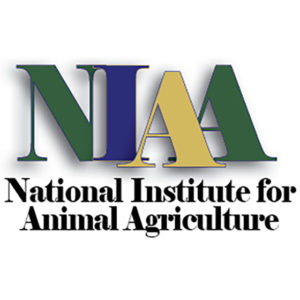National Institute for Animal Agriculture (NIAA) carries a strong legacy of providing the U.S. livestock industry with a forum to collectively address issues of common interest. Successor to the Livestock Conservation Institute (LCI), NIAA began operations in January 2000 and addresses issues of interest to the industry, providing vital industry information, continuing education and communication outlets for animal agriculture professionals.
NIAA is dedicated to programs to:
• Work towards the eradication of diseases that pose a risk to the health of animals, wildlife and humans;
• Promote a safe and wholesome food supply for our nation and abroad;
• Promote best practices in environmental stewardship, animal health and well-being.
An important component of NIAA educational and informational programs is the exchange of technical and other information to help members to be better informed and better able to do their jobs. Through discussions industry-wide, positions are taken, voted on and become industry policy. NIAA is a facilitator of solutions for the animal agriculture industry as workshops pull together decision-makers, problems are identified and solutions initiated for industry-wide gain.
NIAA issue initiatives encompass the entire animal agriculture field including cattle, sheep, swine, avian, equine and aquaculture industries. The organization addresses many traditional livestock industry issues, such as animal health, animal care and handling, animal production (on-farm) food safety, animal identification and information systems and environmental issues, but also engages in emerging issues such as international trade and biotechnology, preventive herd/flock health strategies, disease eradication, animal health emergency management, animal health and trade and emerging diseases.


